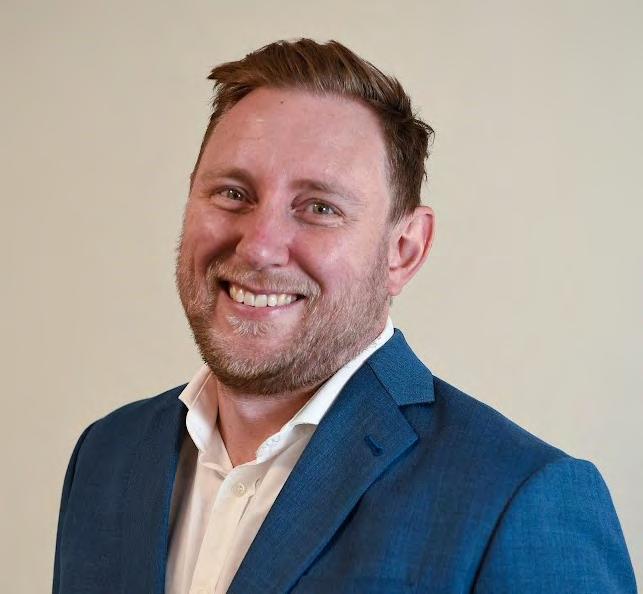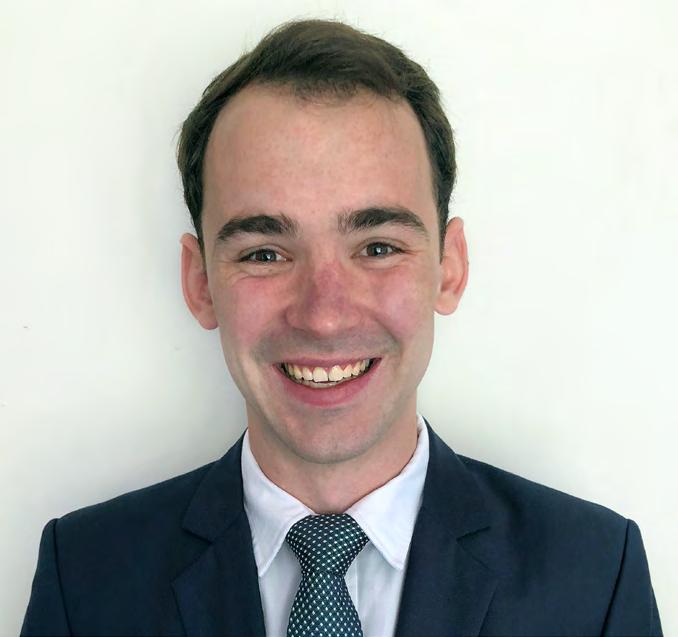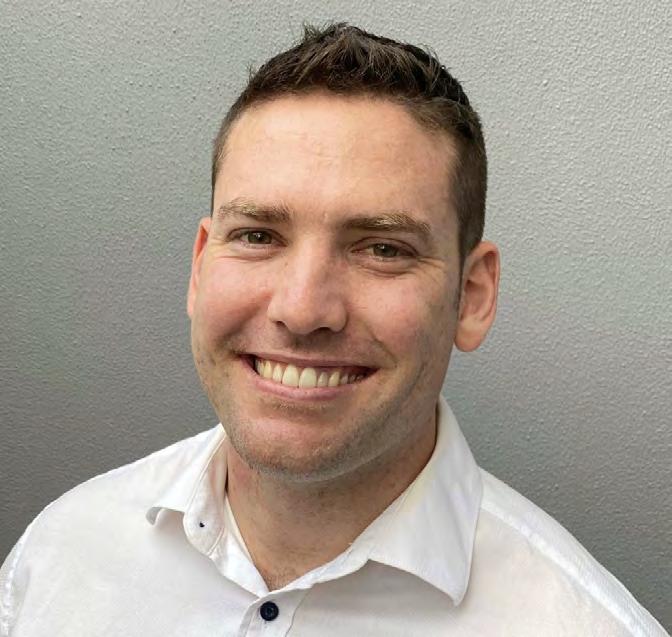
6 minute read
COVIDSurg-3 unites surgical community
COVIDSurg-3 is the latest in a series of studies that has now collected data from more than 140,000 patients from around 122 countries
Surgeons from Australia and Aotearoa New Zealand are part of a large international study that aims to determine the impact of the Omicron variant of COVID-19 on surgical patients and hospitals. COVIDSurg-3 is the latest in a series of studies that has now collected data from more than 140,000 patients from 122 countries. The studies have so far involved surgeons from more than 1600 hospitals and healthcare centres. They have provided data on patient outcomes and impacts on services resulting from COVID-19 infections before or after surgical procedures. The collaboration is the largest of its kind, trumping even the global community involved in the blockbuster physics Large Hadron Collider research.
Advertisement
The latest study, COVIDSurg-3, is collecting data on how the Omicron variant affects respiratory complications in surgical patients when they have been infected pre-or post-surgery, and how the variant has impacted services. The data will be used globally to better determine the risks of surgery before or after an Omicron infection, the optimal timing of surgery, and the best way for hospitals and healthcare services to manage surgical schedules in the face of this variant.
RACS members helping lead the Oceania arm of the research include Gold Coast upper gastrointestinal surgeon Philip Townend. Other members of the team include Perth junior medical officer Kyle Raubenheimer, and Auckland PhD student and non-SET surgical registrar Cameron Wells. Dr Townend was connected to the research through his previous work in Birmingham in the UK, where the GlobalSurg series of studies—which includes COVIDSurg-3—originated. He believes the research will provide greater clarity for health professionals when planning surgery. “We know from the data collected last year and the year before that there is a higher rate of respiratory complications such as pulmonary embolism, pneumonia, admissions to ICU and mortality rate among those with COVID-19, or who catch COVID-19 within 30 days of surgery. But we don’t know if it’s the same with Omicron because we presume it’s milder,” Dr Townend says. “The idea of the study was to help give clinicians and patients information to manage the risk of surgery so they can manage the risk to the patient accordingly, and hopefully avoid complications if things can be delayed until it is safer for the patient.” Dr Townend says the research is impressive for many reasons, including its scale, its reach, and its timeliness. “What makes this research so important is the large volume of patients from across so many countries—from large hospitals to small health centres. The data has also been collected in an extraordinarily short time compared with many other studies. “The more numbers we get, the more powerful the study will be and the more significant the results.” The research has given surgeons from Australia, Aotearoa New Zealand, and the Pacific region the chance to collaborate on a world stage. Dr Townend believes this will breed future research opportunities and provide young surgeons with invaluable experience. “It [COVIDSurg-3] has really opened the door to international collaborative research,” Dr Townend says. “That has not happened extensively in Australia in the past—we have lagged behind the research side of surgery. The exciting thing is that it will open the door to other major surgical collaborations. “This isn’t just about COVID-19; it has also brought the international surgical community together.” While Dr Townend recruited Australian hospitals to the study, he says junior doctors, including medical students, registrars, and junior medical officers, had been instrumental in the study’s success. “The diversity of people involved is fantastic and junior doctors have really taken the lead. It has provided them with the leadership skills to start their own collaborative research.” Dr Raubenheimer is one of the junior medical officers who has been closely involved with coordinating data collection for COVIDSurg-3 in Australia. He has helped coordinate hospitals and health centres, supported them to register and collect data, and ensured the relevant ethics and governance protocols were in place. “Seeing that the surgical community can really band together and provide high quality data that could really impact the evidence base and hopefully lead to better provisional surgical care is really quite exciting.

Dr Philip Townend
“It's also been fantastic to be able to collaborate with the consultants all around the world.
“There's communication between everybody within Australia and Aotearoa New Zealand, but then also on an international scale, in the true spirit of collaboration,” Dr Raubenheimer says. The research has provided Dr Raubenheimer with the opportunity to indulge in a passion for medical research that he had even before he entered the medical field. Originally from South Africa, he studied Exercise and Movement Science at Queensland University of Technology with the intention of becoming a fitness trainer. “I really enjoyed the fact that I could improve people's health by getting them to exercise,” he says. However, realising that there was a ceiling to what he could achieve in that job, he completed his Exercise and Movement Science degree and entered into a Biomedical Science Honours year. During this time he studied the effects of beetroot juice on people's coagulation profiles and cardiovascular health, before studying medicine. “I've been loving medicine and research ever since, especially academic medicine and academic surgery. In academia, you generate better evidence that people use to treat patients and you don’t only impact people you’re treating directly, but you also impact the health of a much broader base.”
In 2018, he became involved with a collaborative research project run by the student-led STARSurg UK collaborative, which studied the respiratory complications following major abdominal surgery. COVIDSurg-3 was a natural progression for him, and one which he hopes saves lives. “If we know when is the best time to operate on patients, and how many procedures we’ve had to cancel, we can plan for the future in terms of making sure that there are enough services to ensure patients get the right type of care they need, when they need it, and don’t suffer adverse health effects from having their surgery delayed,” Dr Raubenheimer says. Fellow junior surgeon Dr Wells agrees that being involved in COVIDSurg-3 has provided the opportunity for international surgeons to collaborate to improve patient outcomes. “Ultimately the most important thing is the generation of high-quality evidence for our patients, and that has been a huge success of this model of research,” he says. Dr Wells became an Aotearoa New Zealand lead for the project after being involved in other international research studies. He recognises the personal benefits of being involved at an early stage in his career.
“This study has helped me and other emerging leaders develop important leadership and organisational skills, which I hope will support the ongoing development of collaborative research in Aotearoa New Zealand, Australia, and the rest of Oceania.
“We have also shown that medical students, junior doctors, and Trainees can learn research skills, and lead and contribute to these projects, and this is increasingly recognised by RACS through their support of CTANZ (The Clinical Trials Network Australia and New Zealand) and other collaborative networks,” he says. Like Dr Raubenheimer, Dr Wells would like to pursue further research during his career. He hopes that the quality of data, and the benefits of its practical application, will encourage future collaborations of a similar scale.
“I hope this research will help improve perioperative care and decision making for surgical patients during the COVID-19 pandemic,” he says. “I also hope that the international networks and collaborations we have developed through this study will persist and continue to grow, allowing us to answer important surgical questions in the future.”

Dr Cameron Wells Dr Kyle Raubenheimer












